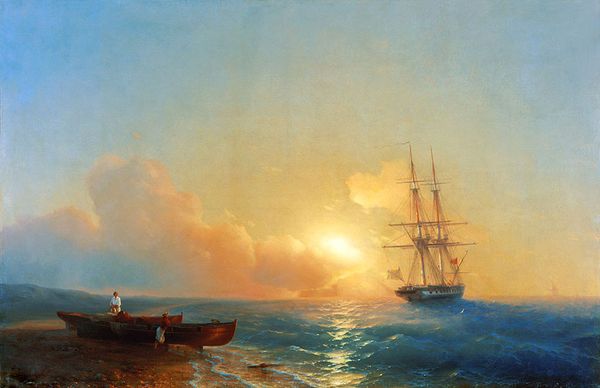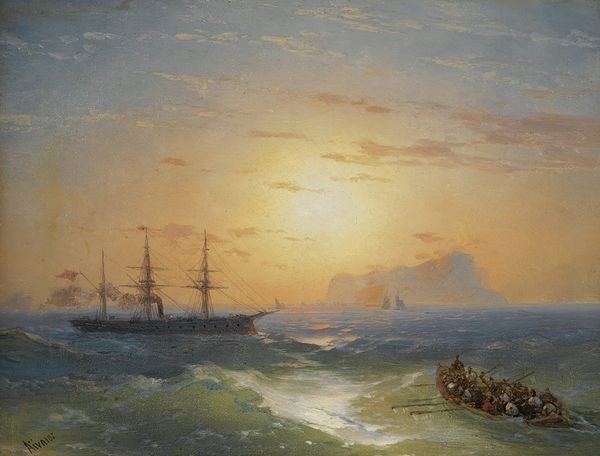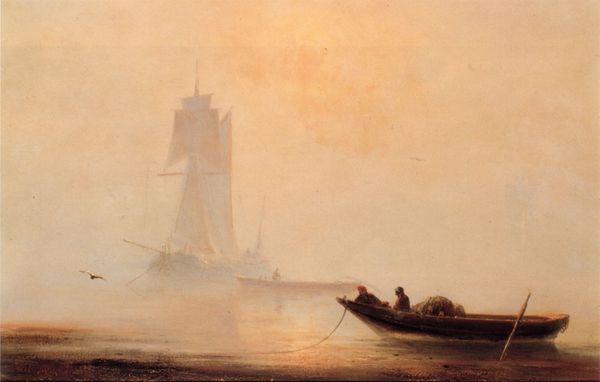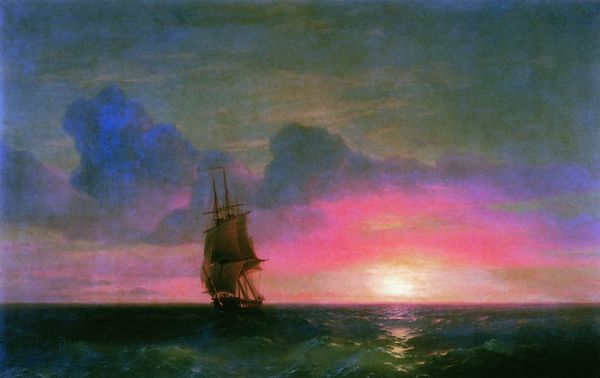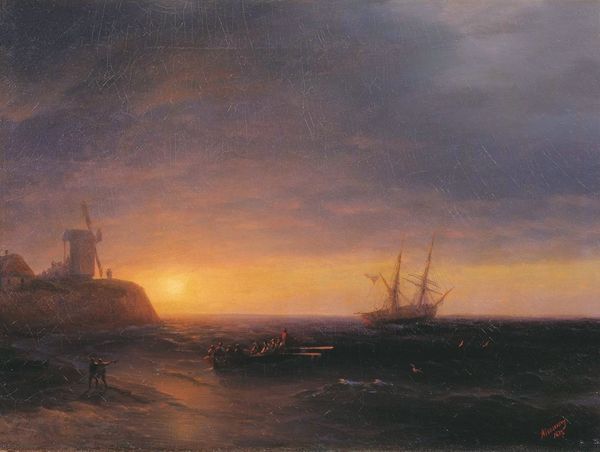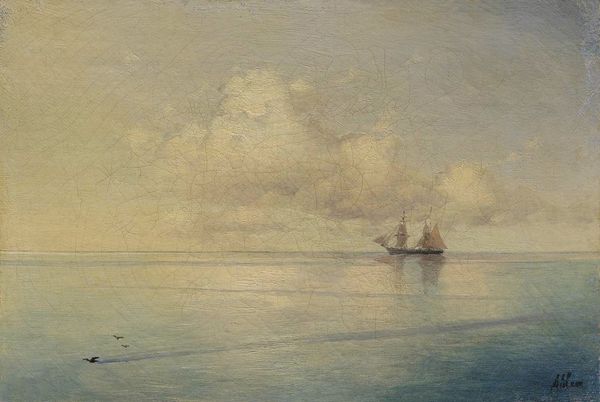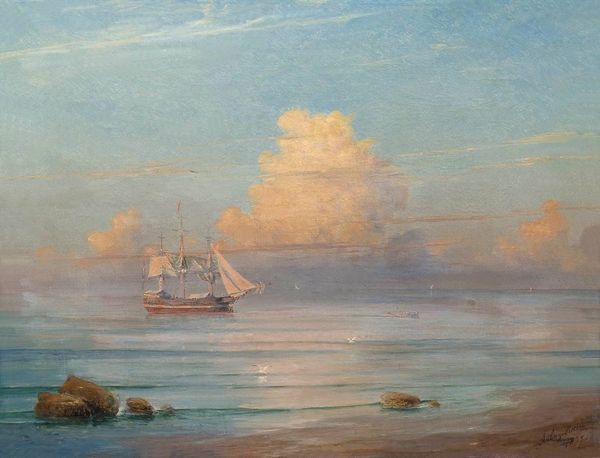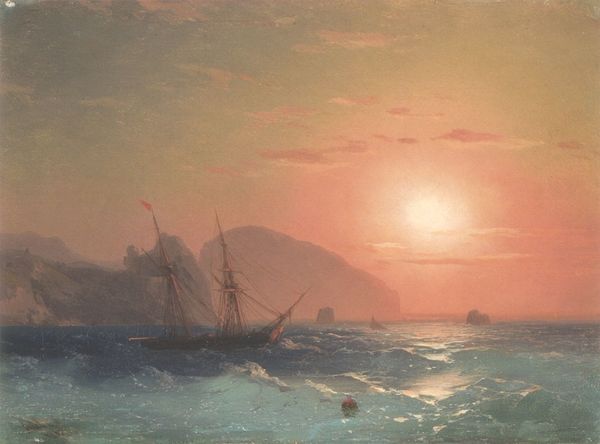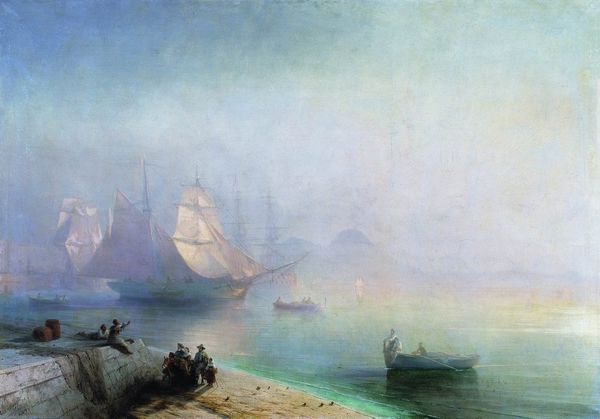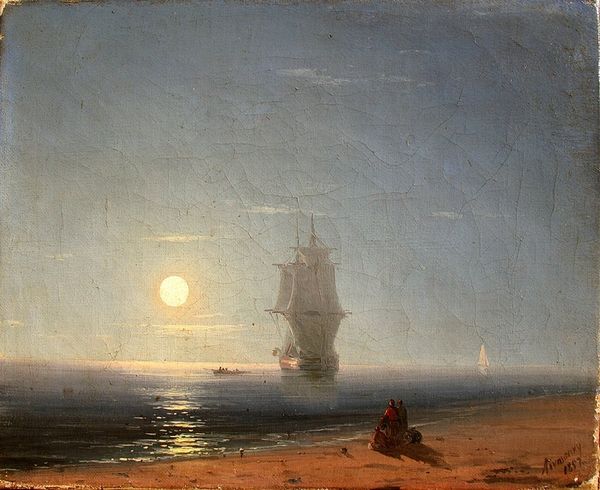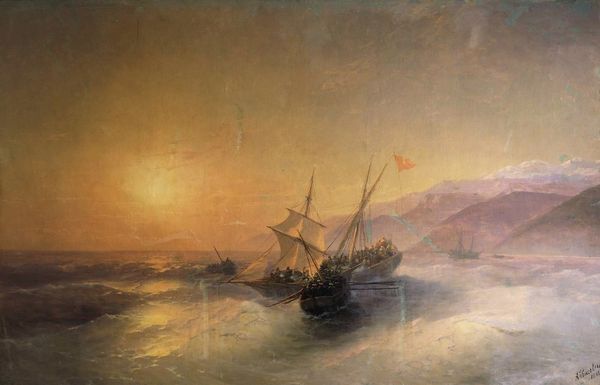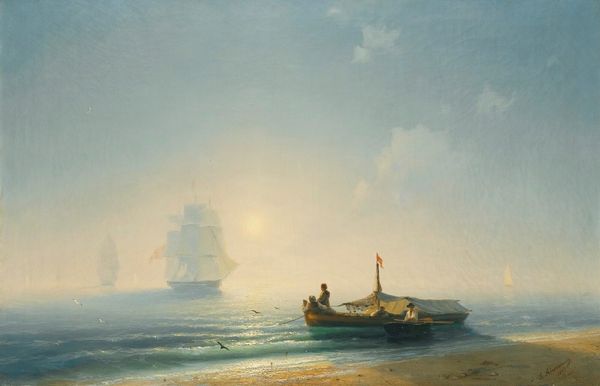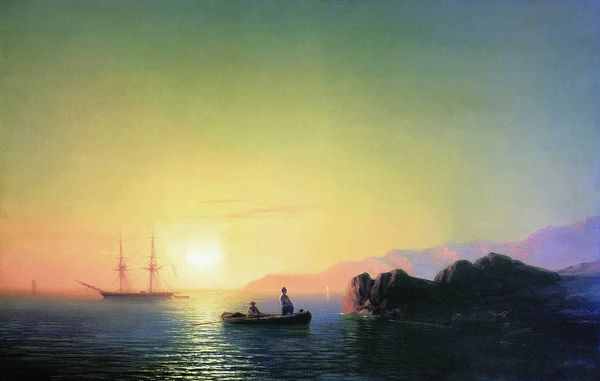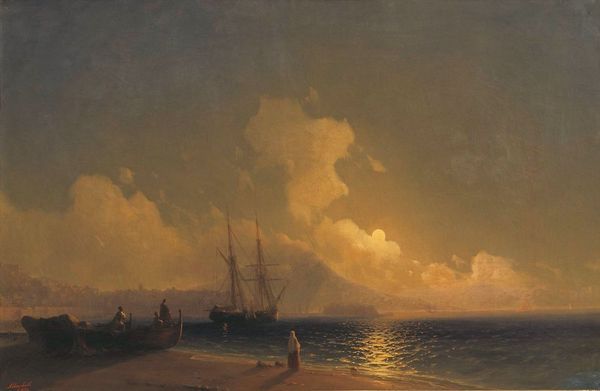
painting, plein-air, oil-paint
#
boat
#
ship
#
painting
#
impressionist painting style
#
plein-air
#
oil-paint
#
vehicle
#
landscape
#
impressionist landscape
#
oil painting
#
ocean
#
romanticism
#
water
#
watercolor
#
sea
Dimensions: 36 x 43 cm
Copyright: Public domain
Curator: The way the light seems to dissolve everything is just incredible. Aivazovsky certainly knew how to capture atmosphere. Editor: Agreed. There's a quiet drama, a stillness about "The Sunset on Sea," painted in 1848, that pulls you in. Before we get too carried away with impressions, though, I think it's important to note the artist's approach to materials. Curator: Of course. Let’s discuss how Aivazovsky has used thin layers of oil paint to create the glowing sunset. We must remember how his skilled handling of the medium transforms something as everyday as paint into pure luminosity. Editor: Precisely. His treatment challenges traditional notions of 'high' art, doesn't it? I see beyond just technique. Ships often represent journeys, and water symbolises the unconscious. Given the period, what could the iconography of that distant ship signify? Curator: Perhaps, that would imply something about Russia’s ambitions for trade and connection with the wider world. The vessel in the foreground represents a different class dynamic? The daily grind that enabled those trade routes, the fishermen and labourers connected to it all? Editor: A potent visual hierarchy, where each boat has a story deeply embedded in cultural currents. The sunset, often used in Romanticism, signifies endings. But Aivazovsky isn't offering just sentimental escapism. His understanding of color, his mastery of gradients and subtle tonal shifts elevate the landscape— the human capacity to shape our own destiny using only the materials we have on hand. Curator: It speaks to something larger, beyond the material realm too, though. The overall impact for me evokes a sense of melancholic beauty, capturing the vastness of the sea and the ephemerality of life. It's hard not to see in it the echoes of Romanticism, like you mentioned, of man's insignificance. Editor: True, though seeing Aivazovsky grapple with these core societal questions reminds me that our work in relation to art isn't ever done.
Comments
No comments
Be the first to comment and join the conversation on the ultimate creative platform.
